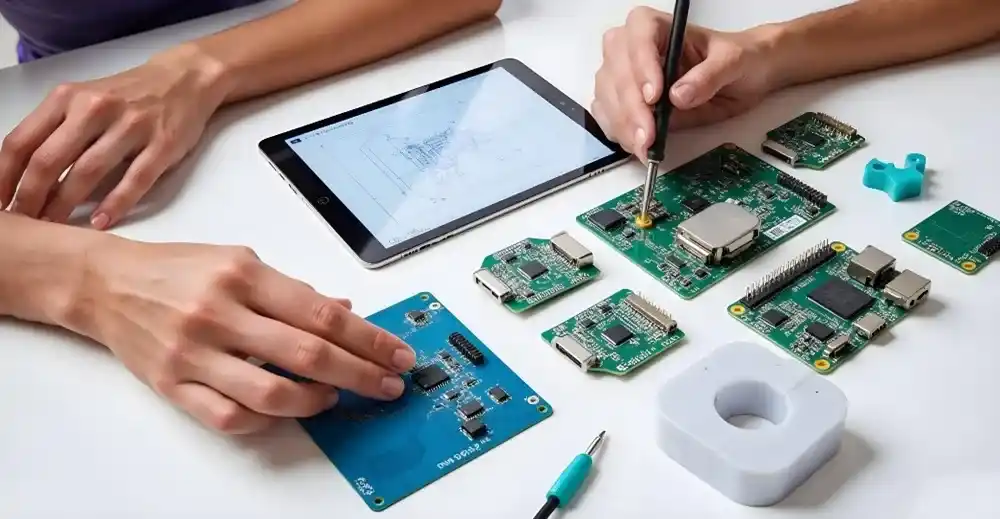3D Scanner Market – Product Innovations by Global Companies

The Global 3D Scanner Market is expected to grow at a CAGR of 13.84% over the forecast period to reach a total market size of US$3.019 billion by 2027, increasing from US$1.219 billion in 2020.
The confluence of advanced technologies has the potential to improve experiential and interactive experiences. The growing number of sophisticated wearable gadgets, along with portable and powerful 3D scanners, has the capability to make interpersonal communication more immersive, accurate, and complementary to production methods. Emerging trends such as mixed reality, the Internet of Things (IoT), and the growing convergence of wearable devices in the automotive manufacturing and aerospace designing areas are expected to boost market expansion. Because of its potential to help in the production of a 3D terrain assessment for any downstream or upstream location, the oil and gas sector is a prominent end-user of these technologies. Additionally, the increasing usage of structured light scanning techniques and the expanding number of new product releases are likely to attract significant investments from major players, driving global market demand in the coming years.
REIGL Laser Measurement Systems GmbH, Carl Zeiss Optotechnik, Topcon Corporation, Trimble Inc., Hexagon AB, Atlas Copco, FARO Technologies, Nikon Metrology NV, CREAFORM, and others are a few key major players in the global 3D scanner market.
Hexagon AB, founded in 1992 and based in Stockholm, Sweden, is a publicly traded worldwide information technology firm specializing in software and hardware digital reality. SmartScan is a 3D light structured scanner offered by the company. The Smart Scan, which is available in a variety of system configurations, offers an effective and economical area scanner measuring performance in applications like quality control, reverse engineering, and fast prototyping. The system is indeed associated with elevated photogrammetry equipment from the DPA Series, enabling even much bigger objects to be photographed and digitized down to the smallest detail using SmartScan's white light scanning technology. Furthermore, the company introduced the Leica BLK2FLY and the Leica BLK ARC in September 2021, expanding its renowned and award-winning BLK series recognized for speed, portability, and movement with completely autonomous mobile reality capture. The automated reality capture systems are the most recent additions to Hexagon's extensive line of accessible, user-friendly digital system-based sensors.
REIGL Laser Measurement Systems GmbH, the laser scanner offered by the company provides comprehensive and extremely accurate 3D data quickly and effectively. Topography, geology, as-built measurements, construction, archaeology, surveillance, civil engineering, and city modeling are just a few of the applications for RIEGL terrestrial laser scanners. For instance, the RIEGL LMS-Z420i is a sturdy and completely portable sensor that has been specially designed for the swift acquisition of high-quality three-dimensional images even in harsh environmental conditions, offering a unique and unparalleled amalgamation of a wide field-of-view, an extremely high range, and fast data acquisition. The 3D scanner is made up of a high-performance long-range 3D scanner, the associated operation and software application RiSCAN PRO, and a calibrated, precisely oriented, and installed high-resolution digital camera.
Nikon Metrology NV is a division of the Nikon Group that provides an advanced metrology product line that includes optical scanning and robotic 3D metrology solutions, as well as cutting-edge vision measuring tools and microscopes. The company offers several products out of which the 3D scanner segment holds a significant share contributing to the market’s development for the upcoming years. For instance, the innovative ModelMaker H120 is a 3D scanner offered by the company that pushes the ever-expanding boundaries of portable laser scanning. This is the newest technology of mobile laser scanning, with blue technique, mega frame rate, specifically built Nikon optics, and the capacity to analyze the most difficult components. Furthermore, SLM Solutions Group AG and Nikon Corporation signed an Investment Agreement in 2022 in connection with Nikon's intention to undertake a voluntary public takeover offer for all outstanding shares of SLM for a cash consideration of EUR 20 per share. Nikon is taking a crucial step toward 3D Printing by purchasing SLM Solutions, which will enable clients to print extremely complex parts while reducing speed, carbon pollution, power costs, and waste.
3D Scanner Market Scope:
| Report Metric | Details |
| Market Size Value in 2020 | US$1.219 billion |
| Market Size Value in 2027 | US$3.019 billion |
| Growth Rate | CAGR of 13.84% from 2020 to 2027 |
| Base Year | 2020 |
| Forecast Period | 2022–2027 |
| Forecast Unit (Value) | USD Billion |
| Segments Covered | Type, Range, Technology, Product, Industry Vertical, And Geography |
| Regions Covered | North America, South America, Europe, Middle East and Africa, Asia Pacific |
| Companies Covered | REIGL Laser Measurement Systems GmbH, Carl Zeiss Optotechnik, Topcon Corporation, Trimble Inc., Atlas Copco, Hexagon AB, FARO Technologies, Nikon Metrology NV, CREAFORM |
| Customization Scope | Free report customization with purchase |
Get in Touch
Interested in this topic? Contact our analysts for more details.
Latest Thought Articles

Top OSAT Companies Driving Semiconductor Assembly and Test Services Worldwide
Recently
EV Charging Stations Market Outlook: Smart Charging, Fast Charging, and Regional Expansion
Recently
Future of Corporate Wellness: Global Trends and Regional Outlook
Recently
Regional Breakdown of the Mechanical Keyboard Market: Who Leads and Why?
Recently